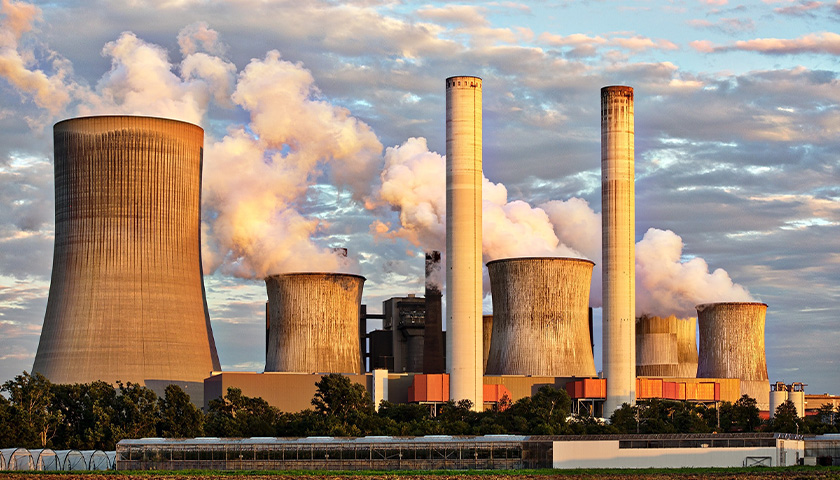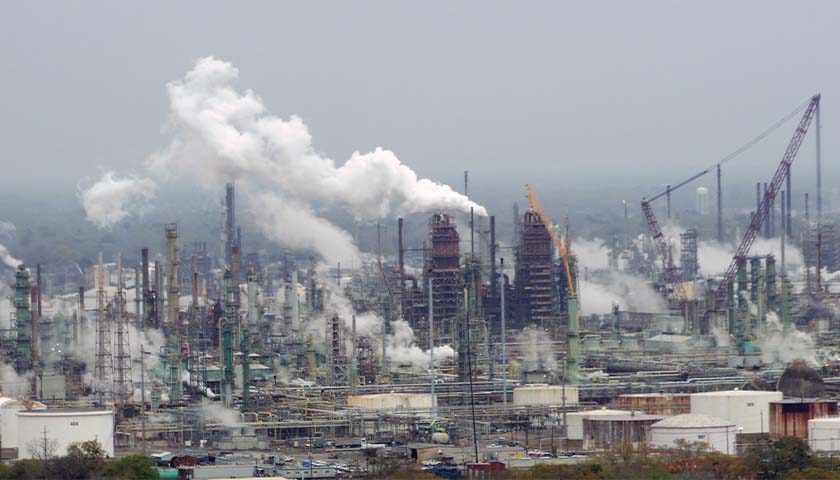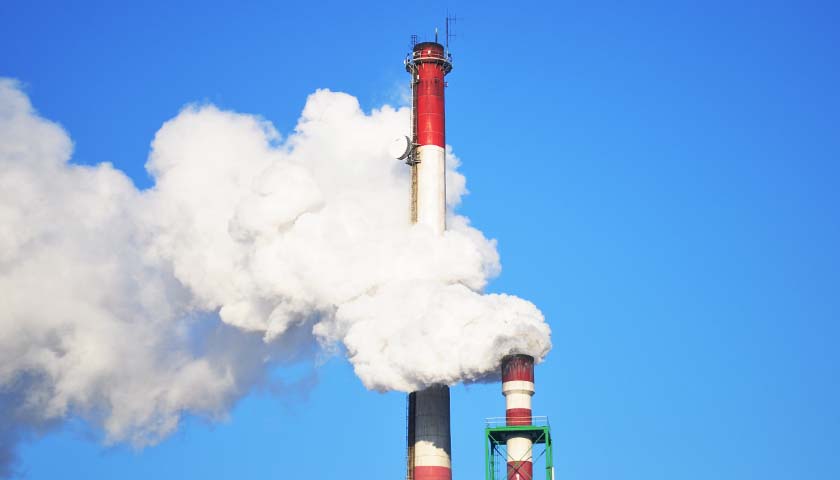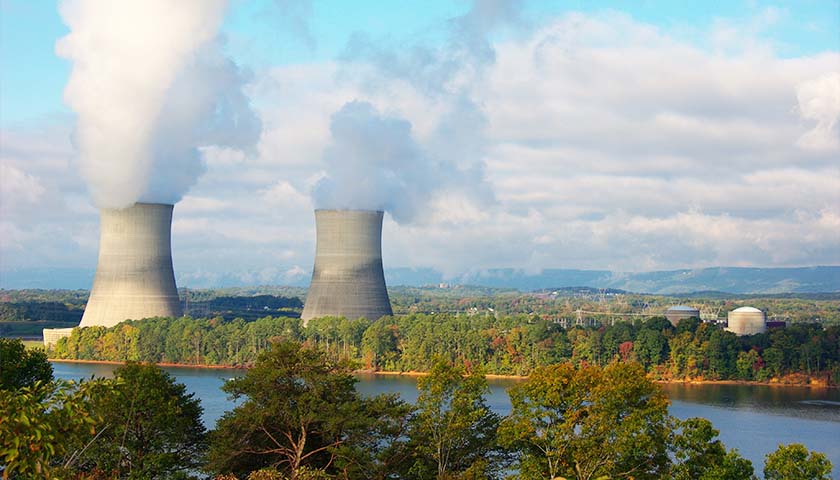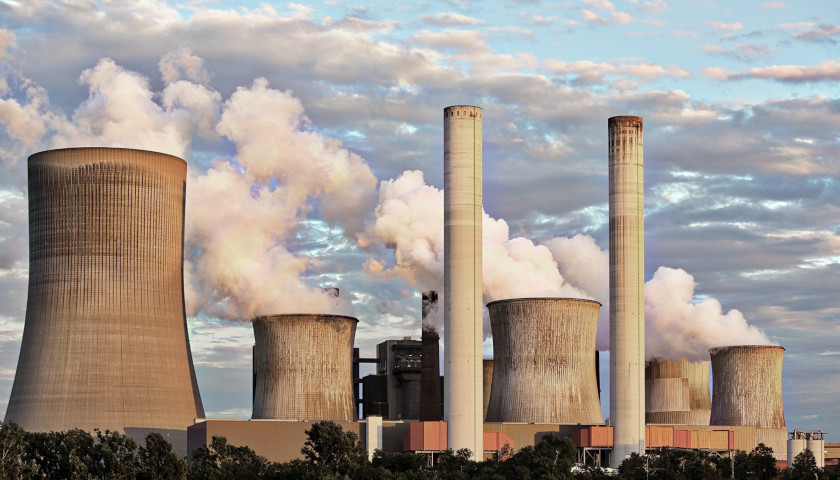Despite Germany’s last-ditch attempt at realism, the European Union recently approved a 2035 ban on gas-powered cars, moving ahead with its “net zero” emissions agenda. In the U.S., the cost of achieving net-zero carbon emissions would be staggering – $50 trillion if the goal is reached by 2050 – as would the demand for raw materials, which in most cases would exceed current annual worldwide production.
Read MoreTag: Carbon Emissions
Ohio Congressman Legislates Against Use of SEC for Social Policy
U.S. Representative Dave Joyce (R-OH-14) is encouraging fellow congresspersons to get behind a resolution he introduced to shield American industry from new disclosure requirements meant to advance leftist environmental policy.
Last year, the Securities and Exchange Commission (SEC) proposed requirements for publicly traded companies to disclose information about the “climate-related risks that are reasonably likely to have a material impact on their business, results of operations, or financial condition….”
Read MoreEPA Quietly Quadruples Regulatory Cost of Carbon Emissions in New War on Fossil Fuels
With the price of everything from gasoline to food soaring in America, nobody is surprised by inflated price tags these days. But even by Washington standards, an action taken earlier this month by the Environmental Protection Agency is creating sticker shock: a nearly fourfold increase in the government calculation of damages from carbon emissions.
Read MoreBiden Wants to Force Government Contractors to Publicly Disclose Carbon Emissions
The Biden administration proposed a rule Thursday that would force all large federal contractors to disclose their greenhouse emissions and “climate-related” financial risks.
President Joe Biden’s plan would require major contractors to publicly disclose the number of carbon emissions they produce and publish their “climate-related” financial risks, according to a White House fact sheet. The rule would also force contractors to set “science-based” emissions reduction targets that were stipulated by the 2015 Paris Climate Agreement.
Read MoreLargest U.S. Oil Producer Vows Net Zero Emissions by 2050
ExxonMobil, the largest American producer of crude oil, outlined its plan Tuesday to achieve net zero carbon emissions by 2050, improving upon previous goals.
The major oil producer identified more than 150 “potential steps” that will help it achieve net zero emissions on its operations within 30 years, the company announced. ExxonMobil will increase investments in carbon capture and storage technology, hydrogen and biofuels, and bio-based plastic waste streams.
“ExxonMobil is committed to playing a leading role in the energy transition, and Advancing Climate Solutions articulates our deliberate approach to helping society reach a lower-emissions future,” ExxonMobil Chairman and CEO Darren Woods said in a statement.
Read MoreU.S. Energy Department Spent over $1 Billion on Failed Carbon-Cutting Projects
Over the last decade, the United States Department of Energy (DOE) spent $1.1 billion on various projects that attempted to reduce carbon emissions through the practice of carbon capture and storage (CCS), only for the vast majority of these projects to either fail or be cancelled.
According to the Daily Caller, the waste of taxpayer money was revealed in a Government Accountability Office (GAO) report that was released in December. The report revealed that the DOE had invested $684 million in eight different CCS projects that focused on coal, only for seven of them to be cancelled, while only a single facility remained in operation. The remaining $438 million was spent on three industrial CCS facilities; of these three, two were successful while one was cancelled.
Read MoreCommentary: Carbon Offsets – Not Taxes or Emissions Caps – Are the Best Path to Carbon Neutrality
Carbon taxes, emissions caps, subsidies – these all seek to reduce atmospheric emissions of greenhouse gases, yet regularly meet criticism and opposition. Is there a more efficient solution to achieving climate balance? Not only is the answer yes, but the potential benefits could far outperform what other strategies hope to achieve.
Most solutions seek to reduce emissions –abruptly or over time– or attain carbon neutrality by utilizing renewable power sources, but increasingly we hear that carbon neutrality is not enough. We must find new technology and techniques to reduce greenhouse gases already in the atmosphere, which will require meaningful investments in research and development. One solution is voluntary carbon offsets.
Carbon offsets are certificates for purchase intended to counteract operational emissions or capture legacy emissions from the past. This is done by paying for a given quantity of CO2 to be neutralized through investment in offsetting projects or technology. Whether the certificates are directed towards conservation efforts, renewable energy, or carbon capture or removal, purchasing carbon offsets provides one party investor satisfaction and the other party an infusion of funding intended to finance a carbon-reduction strategy. When purchasing high quality offsets, these serve as a down payment and incubator toward the best climate solutions available in the laboratory or in the field.
Read MoreAnalysis: Many Environmentalists Oppose Nuclear Energy Despite Its Reliability, Carbon-Free Footprint
Expanding U.S. nuclear power — an energy source that many environmentalists and lawmakers oppose — could be the most reliable way to achieve a carbon-free electricity grid, according to experts.
Nuclear energy is considered a renewable energy source because it produces zero emissions through fission, the process of splitting uranium atoms, according to the Department of Energy. Currently, nuclear accounts for about 9% of total U.S. energy consumption, slightly less than all other renewable energy sources combined and coal, government data showed.
Read MoreCommentary: America Should Put More Resources into Nuclear Power
Recent news in the energy world has not been encouraging. Prices are rising rapidly due to a supply crunch coupled with blistering, post-pandemic demand. Renewables like wind and solar are faltering in an unprepared electrical grid. Coal burning is set to spike to make up for energy supply shortfalls at a time when the world needs to aggressively decarbonize.
Some of this hardship might have been avoided if, over the past couple of decades, policy makers had the guts to support the safest, most reliable form of energy, which also happens to be carbon-free: nuclear. Instead, Germany is taking its nuclear fleet offline and replacing it with fossil fuels, as the country’s already exorbitant electricity prices soar. California is shutting down its last nuclear plant, further imperiling its notoriously fragile grid. All the while, Americans remain divided on nuclear power.
Again, the data is clear: despite nuclear’s damaged reputation, clouded by a few high-profile accidents, nuclear power kills fewer people per electricity produced than any other energy source. It is also the most reliable. Nuclear’s capacity factor, a measure of how often a power plant is producing energy at full capacity over a certain period of time, is the highest by far – almost double that of coal and more than triple that of solar. And nuclear is clean, producing no carbon emissions. Though its radioactive waste often attracts negative press, coal plants actually create more. Moreover, all of the waste that America’s nuclear power plants have collectively produced in a half-century could fit on one football field. This is because nuclear is incredibly efficient. In the U.S., just 55 nuclear power plants produce 20% of the country’s electricity! It takes nearly 2,000 natural gas plants to produce 40 percent.
Read MoreKerry’s Private Jet Emitted 30 Times More Carbon in 2021 Than Average Vehicle Does in a Year
The family jet of climate czar John Kerry has emitted 30 times more carbon so far in 2021 than the average vehicle in a year, Fox News reported.
The private jet emitted 138 metric tons of carbon between Jan. 10 and Aug. 6. It took off 20 times, according to flight data Fox News obtained, updating a previous count of 16 flights.
Read MoreUS Leads the World in Cutting CO2 Emissions, But That’s Not Good Enough for the UN
by Tim Pearce The United Nations is urging countries to pursue more aggressive emissions-cutting policies to keep post-Industrial Revolution global warming under 2 degrees Celsius. The U.N. released a report Tuesday that says the world must revamp efforts several times what they are currently to avoid climate change’s worst…
Read More


